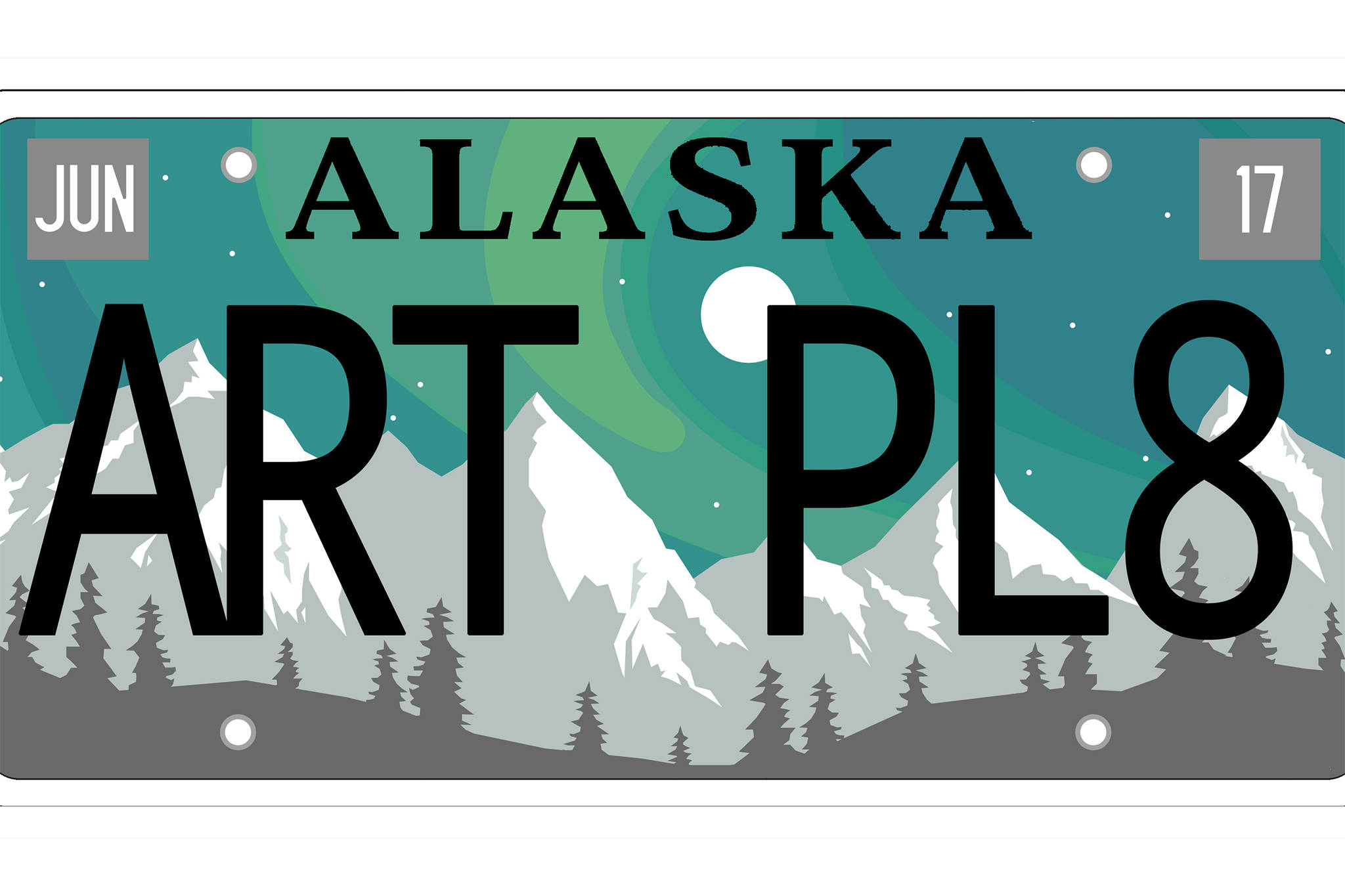License plates could be a big part of the continued existence of Alaska’s state arts agency.
A bill heard in the Senate’s Education Committee Thursday would allow a charge of up to $50 be attached to specially designed arts-supporting license plates that could create revenue for the Alaska State Council on the Arts. There’s already an existing Alaska Artistic License program, but there is currently no extra charge for the plates produced by the program’s 2017 contest.
The exact cost of the surcharge would be set by the state council, per the bill, and ASCA chair Ben Brown said it’s unlikely to be the allowable limit of $50.
“The goal is to find that sweet spot where we have as many artistic license plates as cars on the roads, but we’re generating a meaningful amount of income and earned revenue for the State Council on the Arts,” Brown said.
Based on the popularity of the existing artistic plates, it may not take a steep surcharge to generate an impactful sum.
From March 2018 when the plates began to be issued to August 2019, more than 30,000 of the arts plates were issued, according to data from the Division of Motor Vehicles shared during the committee meeting.
“For a period last year, that was more than either the bear over the counter or the yellow standard,” Brown said.
If a $5 surcharge did not dissuade drivers from ordering the plates, that would equate to over $150,000 for ASCA. That’s over 21% of the about $700,000 in general fund money included in Gov. Mike Dunleavy’s June 2019 veto of $2.8 million in funding for the state council.
That full vetoed amount also included federal funding and funding from private foundations. The license plate bill would also exclude private nonprofit money raised by ASCA from being subjected to vetoes.
That loss in funding threatened the existence of the state council, which shut down amid financial uncertainty for about two months last summer.
Federal funding for state arts agencies is dependent on matching funds from the state, so the vetoes also meant ASCA lost its federal support. With no federal or state funds coming through, Brown said private donors were uninterested in picking up the entirety of the slack.
Funding was restored in July and signed into law in August, and ASCA reopened.
[NEA chair says loss of arts would hurt the economy]
“The Rasmuson Foundation and Margaret A. Cargill Philanthropies are not interested in paying for an education program and all the staff costs of administrating it,” Brown said.
After the committee meeting, Brown said in an interview that while the Alaska State Poetry Out Loud poem recitation contest is progressing as usual with a final competition scheduled for March 12 in the capital city, ASCA as a whole is still getting back up to speed.
“Being shut down for two months does a lot more damage to your operations than you might guess,” Brown said.
• Contact reporter Ben Hohenstatt at (907)523-2243 or bhohenstatt@juneauempire.com. Follow him on Twitter at @BenHohenstatt.

